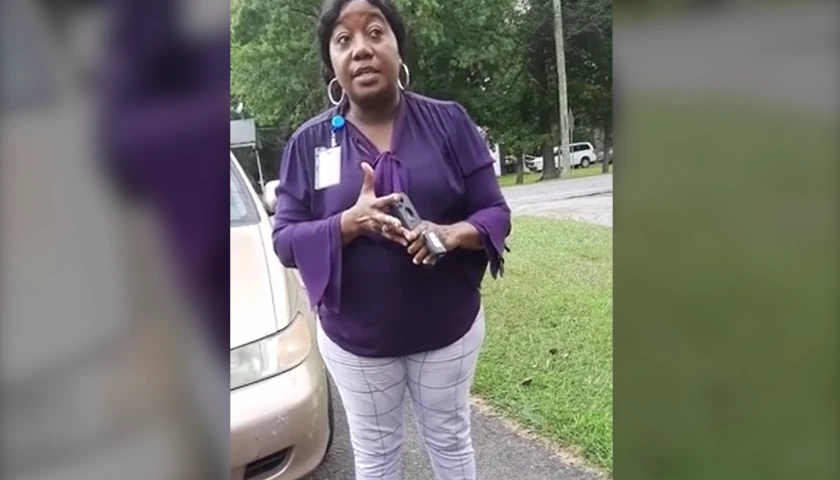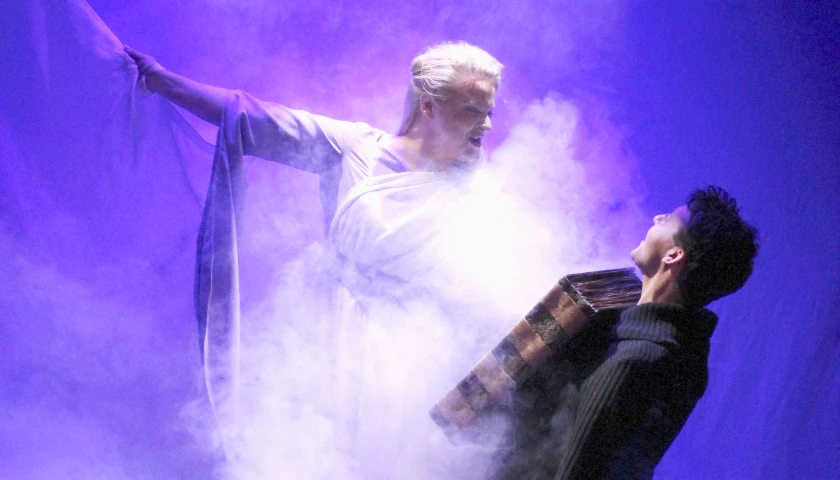by Bruce Bawer
If you had told me a couple of years ago that a book like Robin DiAngelo’s White Fragility: Why It’s So Hard for White People to Talk about Racism would be topping the bestseller lists and receiving accolades from all over, I wouldn’t have believed it.
And I’m speaking as someone who, in my 2012 book The Victims’ Revolution: The Rise of Identity Studies and the Closing of the Liberal Mind, warned about the dire ascendancy of identity studies, which are far less about education than about ideological indoctrination and the promotion of social activism.
Although I focused in my book on Women’s Studies, Black Studies, Queer Studies, and Chicano Studies, I devoted a few pages to DiAngelo’s then-fledgling field, Whiteness Studies, which, given the current preoccupation with white racism, is now poised for prominence on a level outstripping even those behemoths.
There is a key difference between Whiteness Studies and other identity studies: to quote David Horowitz, “Black Studies celebrates blackness, Chicano studies celebrates Chicanos, women’s studies celebrates women, and white studies attacks white people as evil.”
Strangely, Whiteness Studies almost didn’t make it.
The election of Barack Obama made it difficult for practitioners to assert with a straight face that black Americans were still victims of brutal systemic white racism—the discipline’s principal claim. “Having Obama is, in a curious way, putting us behind,” Eduardo Bonilla-Silva, author of White Supremacy and Racism in the Post-Civil Rights Era and now president of the American Sociological Association, admitted to CNN in 2012.
Charles Mills, a distinguished professor of philosophy at CUNY whose books have titles like The Racial Contract, Blackness Visible, and Black Rights/White Wrongs, agreed, lamenting that Obama’s election had fooled many white Americans into thinking the U.S. was now “post-racial.” Among those who had been “fooled” was the African American linguist John McWhorter, now an associate professor at Columbia University, who in a December 2008 article for Forbes pronounced that racism was no longer a serious problem in the U.S.
Had this view become more pervasive, it would have been disastrous for Whiteness Studies, whose argument for its own existence is that the poorest white Americans continue to enjoy social and cultural privileges that people like Oprah and Obama don’t.
Even if you’re a white person who’s been passed over in college admission, hiring, and/or career advancement because of affirmative action, you’re still, in the view of Whiteness Studies, more privileged than a black person who’s benefited repeatedly from racial preferences.
Fortunately for Whiteness Studies advocates, Obama’s presidency proved to be anything but post-racial. He never missed a chance to tell Americans that race relations remained deplorable. That gave Whiteness Studies a shot in the arm.
In February 2015, The New York Times reported that elite primary and secondary schools in New York had begun holding “white privilege” seminars and courses. After Obama’s departure from the White House, the annual White Privilege Conference has grown apace, and the lists of course offerings in Whiteness Studies have expanded.
If you sent your child to Northwestern, he or she could sign up for “Deconstructing Whiteness,” a “6-week caucus” in which “undergraduate students who identify as white” can explore their own “biases and white privilege.” At Duke, your son or daughter could have taken Whiteness 101, described as “an entry point for students who want to address racial privilege and how it operates in society.” Students were told about “the history of whiteness in America” and encouraged “to become anti-racism advocates for change.”
Not only are white Americans suddenly preoccupied with their own supposed racism; in an effort to understand and eradicate it, they’re turning to merchants of Whiteness Studies ideology. Writers such as DiAngelo, who rejects colorblindness as a goal and paints a picture of a world in which race is the alpha and the omega, and Ibram X. Kendi, who considers it racist to fret about fatherless black homes, black-on-black crime, or the black achievement gap (and has two books on Amazon’s top ten), have become fashionable.
Whiteness Studies has become big business. That marks a major step down from ordinary identity studies, which at least recognize factors other than sex and race as determinative of individual status.
By contrast, Whiteness Studies, as a rule, sees the world in strictly black-and-white terms, even in circumstances where race is all but irrelevant.
Take the case of Peggy McIntosh, whose 1989 essay “White Privilege: Unpacking the Invisible Knapsack” is one of the field’s founding documents. The daughter of a top Bell Labs scientist, McIntosh grew up in the wealthy suburb of Summit, N.J., was educated at Radcliffe, the University of London, and Harvard, married the son of a former president of Barnard College, and has spent her career on college faculties. In short, she’s extremely privileged. But the nature of her privilege isn’t racial.
As William Ray observed in a 2008 essay for Quillette, McIntosh:
confuses racial privilege with the financial advantages she has always been fortunate enough to enjoy…One is left to wonder why, given her stated conviction that she has unfairly benefited from her skin color, there seems to be no record of her involvement in any charity or civil rights work…Nor, as far as I can tell, has she spent any time teaching the underprivileged or working directly to better anyone’s condition but her own. Instead, she has contented herself with a generous six figure salary, and has not shown any particular eagerness to hand her position over to a more deserving person of color.
What about black practitioners of Whiteness Studies? Typical of them is Yale’s Claudia Rankine, who last year published a 6,000-word piece in The New York Times Magazine about her encounters with everyday racism.
Rankine explained that as she travels around the world “giving talks about my work,” she’s surrounded by white men. “That I was among them in airport lounges and in first-class cabins spoke in part to my own relative economic privilege, but the price of my ticket, of course, does not translate into social capital. I was always aware that my value in our culture’s eyes is determined by my skin color first and foremost.”
If McIntosh chooses to portray her economic privilege as racial privilege, Rankine acknowledges her own economic privilege only to deny its impact on her social status, which, she insists, is solely race-determined.
Rankine’s examples of racism are astonishingly lame. At one airport, “a white man stepped in front of me” and she had to tell him to wait his turn. This has happened to everyone; but to Rankine, this incident, upon which she expatiates at length, reveals deep truths about “white privilege” and “white solidarity” in “white spaces;” to this man, she instructs us, her presence in his “white space” represented “an unexpected demotion.”
Even when a white stranger seated beside her on a plane chides the flight attendant for forgetting Rankine’s drink, Rankine interprets his act as a manifestation of “white male dominance.” She compares notes with him: although both have “Global Entry,” he never gets flagged by the TSA, while she’s sometimes stopped. One wonders: Are these the worst run-ins Rankine ever had with white people?
Rankine is Whiteness Studies: an exceedingly privileged person whose “work,” as she puts it, consists of pointing to ridiculously minor events in her lush life as evidence that she’s miserably oppressed. In fact, she owes her privilege to her ability to keep banging on about her oppression.
It’s a shabby way to make a living—mischievous, drenched in hypocrisy. It certainly has nothing to do with serious research, scholarship, or education. It’s social activism, based on grotesque misconceptions about how society works.
Such destructive nonsense has no proper place in an institution of higher learning. Like other identity studies, it’s a waste of time and money, having little or nothing to do with expanding a student’s knowledge of the world; but, even more than other identity studies, it’s malicious and dangerous, designed to sow hatred and intensify racial discord.
– – –
Bruce Bawer’s book While Europe Slept (2006) was a New York Times bestseller and National Book Critics Circle Award finalist. His other books include A Place at the Table (1993), Stealing Jesus (1997), Surrender (2009), and The Victims’ Revolution (2012).
Photo “Nuclear Family” by Donald Lee Pardue CC2.0.






@William Delzell
That was in 1978. This is 2020. Things have certainly changed. Myself – lost out to a black woman once for a really nice job although I was much more qualified.
Shoot – maybe trannies are at the head of the line now?
As for the allegation that Affirmative Actiion favors blacks over whites, the Baake case of 1978 showed that Affirmative Action actually favors white females over everybody else. Most of the people that passed ahead of Bakke for college admission were 95% white. No, Affirmative Action does not favor blacks; it has favored female whites over everybody else. But Baake ‘s supporters chose to blame blacks anyway.
Whiteness studies? Really! Give me a break. Just about as racist as you can get.
The term “White Privilege” is a lie. In fact I find the term extremely offensive.